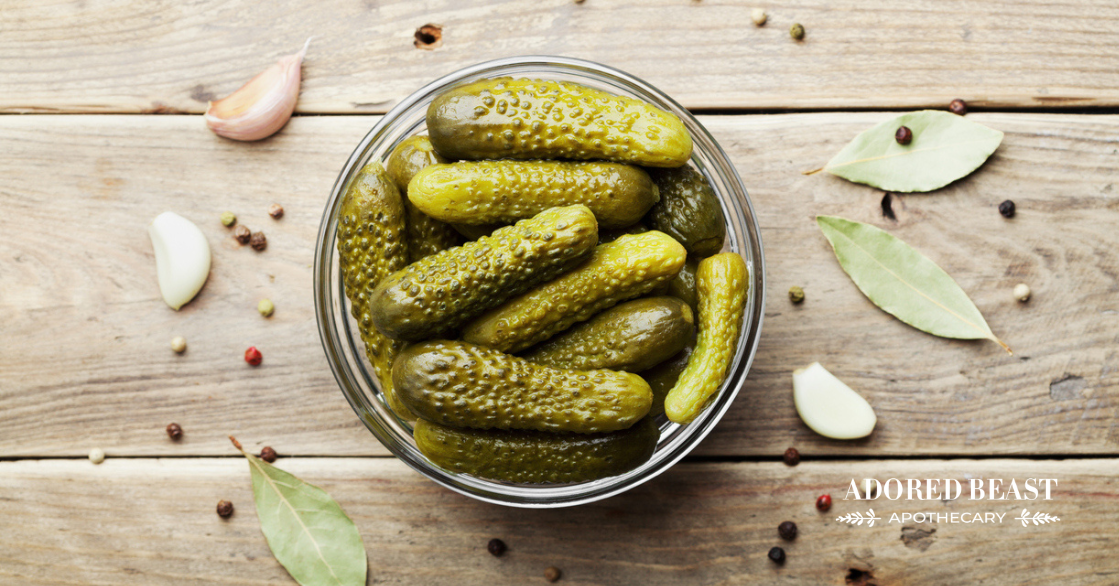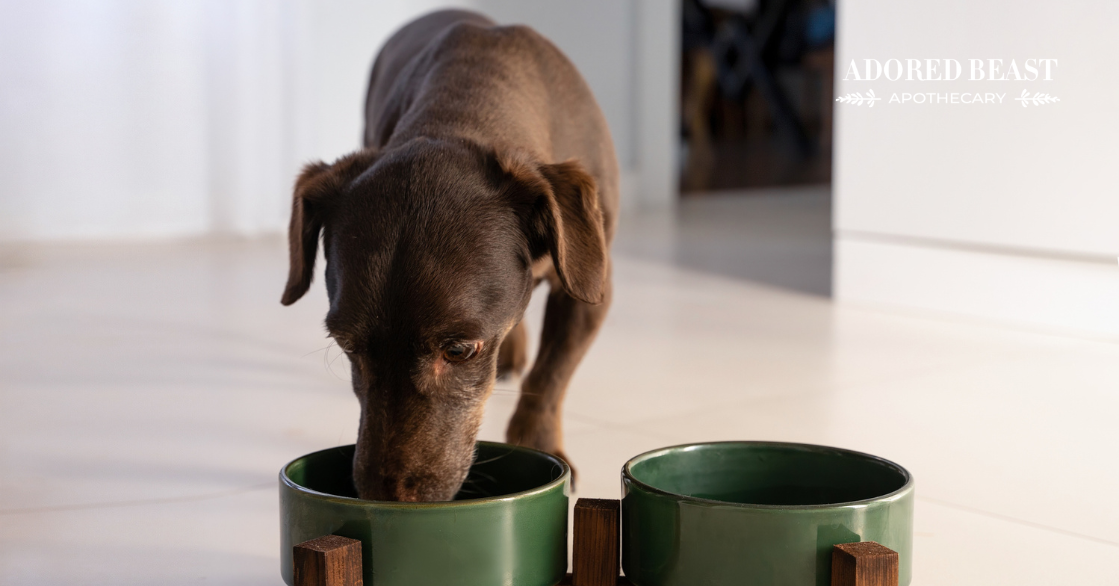Pickles, with their tangy flavour and crisp texture, are well-loved in our house. Whether on burgers, in potato salad, on a sandwich, or just as a quick snack all on their own, a jar of pickles doesn’t last long in our fridge.
But when it comes to sharing your favourite snack with your furry friend, the question arises: can dogs eat pickles?
We share a lot of foods with our dogs. But are pickles on the list? And if not, is there a similar alternative?
How Are Pickles Made?
Cucumbers are obviously the star ingredient in that jar. And we love them – both for ourselves and our doggos. They’re low in calories and packed with essential nutrients like vitamins K, C, and B, as well as minerals like potassium and magnesium. They’re also high in water content, making them a hydrating and refreshing snack for both humans and dogs alike.
But once they’re turned into pickles, are they still a shareable snack?
Pickles are typically made by fermenting or pickling cucumbers in a brine solution containing ingredients like vinegar, salt, sugar, and various herbs and spices. While cucumbers themselves are good for our dogs, it’s the other ingredients in pickles that can raise concerns.
Can Dogs Eat Pickles?
As with so many things in life, it’s not a yes or no answer. While most pickles aren’t necessarily harmful, they can be problematic.
To start, most pickles you find at the grocery store are extremely high in sodium. While sodium, in general is an important part of a dog’s diet – a small amount is necessary for normal body function – lots of salt isn’t healthy for dogs. Too much can lead to seizures, excessive thirst, vomiting, diarrhea.
And then you have those spicy, zesty pickles or the mixed jars with onions and cauliflower. Many options contain potentially harmful ingredients like onions or artificial additives. These things can lead to digestive upset, which we don’t want.
Since there isn’t a standard recipe for making them, it’s important to know what they contain before you share.
Can dogs eat pickles we make ourselves? That’s usually better in fact! If you control the ingredients, they can be a yummy addition to the regular rotation – if your dog likes them.
But another alternative you might want to consider are fermented vegetables in general!
The Benefits of Fermented Foods
Fermented foods, and yes, that includes certain types of pickles, can offer potential health benefits for dogs. Fermentation produces beneficial probiotics, which support a healthy gut microbiome and can improve digestion and immune function. But that’s not all! Fermented foods also offer antioxidants, antimicrobials, antivirals, and pre and postbiotics, made super bioavailable by the act of fermentation itself!
Fermented foods are relatively easy to make, if you’re feeling the Betty Crocker vibe. We have the recipe at this post: How to Make Fermented Vegetables for Dogs.
If you want to buy them, that’s cool too.
Look for naturally fermented products without added sugars, artificial flavours, or preservatives. Opt for small-batch or artisanal brands that prioritize quality ingredients and traditional fermentation methods. Avoid ingredients like onions, artificial additives, or excessive sodium. Look for organic whenever possible.
Tips for Feeding Fermented Foods
If your dog is new to fermented foods, introduce them gradually, starting with small amounts to assess their tolerance and prevent digestive upset. Build up slowly over time and watch for any changes. If you notice your dog is a little more gassy than usual, that’s normal – it’s just a result of all the magic the fermented food is making happen in the gut.
Also, we don’t recommend introducing fermented foods when there is digestive upset or any GI issues happening. It’s a powerful process, so you want to protect those sensitive tummies. Best practice is to introduce any new feeding option to your dog when they’re in their healthiest, most balanced state, if possible.
Some dogs may not be fans of fermented foods at first, or at all. If you try and it’s a no go, don’t worry about it. You can always try again at a later date or with a different fermented vegetable. Sometimes dogs just need a few gentle introductions with different options before diving in.
There is one other thing that’s important to note. While fermented foods – pickles or otherwise – can be great, there are times we avoid them. For any animal dealing with histamine reactivity, which can look like mast cell tumors, allergies, etc., please be mindful of the fact that fermented foods are not only chock full of vitamins and minerals, they’re also loaded with histamines. In the case of histamine reactivity, you don’t want to increase the levels in the body, so you may want to minimize or avoid fermented foods if this is the case with your pup.
So, can dogs eat pickles? Maybe. While cucumbers themselves are a healthy and hydrating snack for dogs, pickles may not always be the best choice. Be sure you know what’s in the jar, use a dog-safe DIY recipe, or opt for something like fermented cabbage, broccoli, or beets instead!












